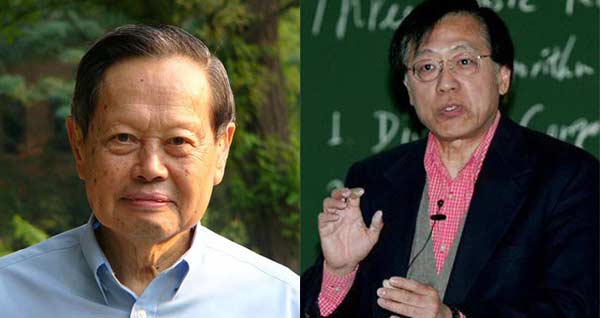Academicians should not get to hog resources
 |
|
Nobel laureate C.N.Yang (left) and Turing Award winner Yao Qizhi. [File photo] |
ON SATURDAY, the Chinese Academy of Sciences announced that Chen Ning Yang, winner of the 1957 Nobel Prize for Physics, and Yao Qizhi, recipient of the 2000 Turing Award, have been admitted as academicians as they have renounced their US citizenships and are now Chinese citizens. China Youth Daily comments:
In China, being honored with the title of an academician brings with it economic interests as well as academic privileges, as the holders will receive many invitations to host research programs.
Actually, some academicians have been invited to host so many programs that they can hardly invest any energy in each of them. Many research institutions know this, but they still keep inviting academicians because there is a blind worship of them among domestic scholars, even residents.
That blind worship has squeezed the resources available for young scholars. Many young scholars are rather creative and have many fresh ideas, but they do not have honorary titles so they cannot get sufficient resources for their research. When they are senior enough to get the resources, they have already passed the golden era in their academic career.
We hope the ongoing reform of the education sector can change this. Those who have made major academic contributions deserve honorary titles and due respect, but that does not mean they should be given the majority of academic resources.
The blind worship of academicians must be abolished, so that young, creative scholars can get sufficient support to achieve academic breakthroughs.
- Nobel laureate, Turing Award winner become Chinese citizens, join CAS
- Who are the Chinese citizens that are not permitted to marry foreigners?
- Nobel Prize no yardstick for China's academician system
- Academician and expert workstations power hi-tech enterprises
- First academician workstation of lubricating oil launched in Xinjiang
- Academician faces probe for plagiarism

























